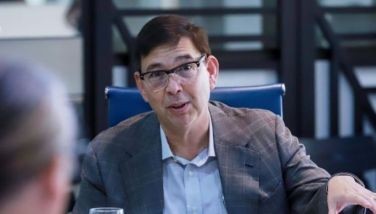Forget CSR, do something bigger

The country’s top business conglomerates and richest Filipinos should really put their money where their mouths are on inclusive growth. They ought to forget tokenism which, in all honesty, their CSR projects are all about. They must do something bigger and whose impact can be seen and felt.
An honest to goodness program to attack poverty and make a difference is also in the self interest of our ruling social and economic elite. Not only will this improve the buying power of our masa for their products and services, it may also stop them from feeling deprived enough to resort to more drastic means to correct the social order. It is now happening in Thailand, it may take time to happen in the Philippines but eventually it will happen here too.
Last month, I suggested a summit meeting of the country’s top business leaders with P-Noy and Neda Chief Arsi Balisacan to discuss what can be done to address poverty. I was thinking that each of the conglomerates can adopt one poverty stricken province and help take that province out of the list of the country’s poorest. But nothing should stop the big guys from doing something on their own even without government involvement.
Depending on what list you look at, the following provinces are supposed to be among the country’s poorest: Apayao, Bukidnon, Camiguin, Eastern Samar, Lanao del Sur, Lanao del Norte, Maguindanao, Negros Oriental, North Cotabato, Northern Samar, Sarangani, Sultan Kudarat, Sulu, Western Samar, Zamboanga del Norte, Agusan del Sur, Davao Oriental, Mountain Province and Tawi tawi.
A final list of ten or fifteen can be made by NEDA and conglomerates can select from the list or be assigned one from it. The idea is to utilize the expertise and reach of the conglomerate to get the economy of the province to move up enough to get the province out of the most poverty stricken list.
The principle in this adopt-a-poor province approach is that the rich in our society is responsible for the poor, his brother’s keeper, to the point of bringing the poor to a level where he is able to fend for himself. We are all together in this ship called the Philippines and the holes in its hull that remain unattended will sink the entire ship, drowning even those in the luxury lounges.
Bayanihan is another principle involved here. We are all Filipinos and by nature, we are supposed to be ready to help those who are in need.
The problem with CSR is that most if not all CSR projects are driven mainly by image building motivations. These are managed by the public relations people who are more concerned with column inches scored than mouths that have been fed. Those Anvil Awards changed nothing in the wide divide between the rich and the destitute of this country.
CSR, despite some protestations to the contrary, is ultimately measured by how much the company’s reputation had been served. Companies with very good PR people who are able to extract the best exposure for even a small program are rewarded. I, myself, must confess some mea culpas in this regard. CSR may assuage the corporate conscience but stop there.
I am not saying CSR projects do not benefit the intended beneficiaries. But even worthwhile projects, like Ayala’s Centex, for example, tend to be mere token activities. These projects, while laudable, lack the proper scale to produce a visible impact on the immense problem of poverty.
Assigning one conglomerate to one poor province will probably give a noticeable development boost. A billion pesos worth of CSR projects scattered nationwide will be lost in the vast sea of poverty. That amount of money invested in one poor province may produce a noticeable difference in the lives of people whose faces a taipan can actually see. What is a billion pesos to our dollar billionaire taipans?
Indeed, if a conglomerate is able to choose a poor province whose development could be made integral to the company’s business activities, the effort may even be painless. A good example is a company with interests in tourism working with a poor province with tourism potential. Or farmers in a poor province can be made contract growers that will provide raw materials for the company’s manufacturing operations.
Nestlé is already helping some farmers grow good coffee beans and assures them a ready market. San Miguel turned a problem with land reform farmers into a business opportunity that benefits them all. They just have to significantly scale these projects and we need more such projects specially for the poorest provinces.
Sometimes, a poor province only needs the expertise of the company’s executives to help them strategize and implement programs. The government often has enough funds for development that only gets dissipated in scams like the Napoles operations. Maybe companies can harness their retired but highly experienced executives to provide those management skills to a poor province.
Of course this also assumes the ruling political dynasties in the poorest provinces will cooperate in the effort to uplift their economy. Development often works against the interests of the local kingpins but there should be enough poor provinces for an initial experiment of this concept if some LGUs are hesitant.
What is happening in Thailand should ring alarm bells among our political, social and economic elite. There was a time when Thailand was our ASEAN twin, same population, same economic situation.
Thailand overtook us and experienced tremendous growth. But the growth was monopolized by the Bangkok elite and left out the provinces where poverty was oppressive. It took just one crafty politician to use this non inclusive growth for his advantage. That’s what the red shirts vs the yellow shirts problem is all about.
Our problem is no less explosive. Data shows the income divide between the have’s and have-not’s remain wide, according to NSCB Secretary General Jose Ramon Albert in a Rappler article last year.
“We observe that the bottom 20 percent of families have a share of about 6% of the total national income, whereas, the upper 20% of income distribution, have a share of nearly 50% of total national income,†Albert said.
“The total income of the top 20 percent of Pinoy families, in other words, is approximately 8 times of the total income of the bottom 20 percent of Filipino families in the first semester of 2006, 2009, and 2012,†he added.
The worse thing that could happen for our country is for those who can do something choosing to do nothing or nothing much. Even if they think they can escape any social turmoil with a quick exit to foreign shores, they won’t have enough time to take their assets with them.
The elite should not feel comfortable in the inability of the NDF to mount a successful revolution. All it takes is one Hugo Chavez firebrand in a surprise coup to change everything by force.
As we eradicate corruption in the armed forces, what we are left with are idealistic officers and rank and file who are sensitive to class oppression. Remember that the firepower of our armed forces is in the hands of people who themselves come from the same social classes mired in poverty and are naturally sympathetic to their plight. Their frustration with the system can just explode.
We have this chance to do it right. We can’t depend on government to do it alone because it can’t. The Ayalas and the Chinoy taipans among others must show commitment to this country that has rewarded them and their families richly. And CSR alone won’t do it.
Ninoy’s essay
Joseph G e-mailed this reaction to last Friday’s column on Ninoy Aquino’s essay, What’s Wrong with the Philippines:
Dear Mr. Chanco,
I am not surprised by this because we have not had a leader that could finally break the vested interest groups and move toward a richer and better Philippines for the good of the 80-100% of Filipinos.
Marcos tried but succumbed to self interest. Cory Aquino was just so tied up with politics. Ramos could have done it but run out of time. Estrada did not work. Arroyo was plagued forever by her credibility though she worked. P-Noy was weighed down by his lack of vision. After battling graft and corruption, what? NADA?
Hopefully, the next president and our collective leadership will really have a vision of a progressive country for all Pinoys and not only for the few.
Thank you Mr. Chanco for your incisive views and write ups. We need you!
Boo Chanco’s e-mail address is [email protected]. Follow him on Twitter @boochanco
- Latest
- Trending





























